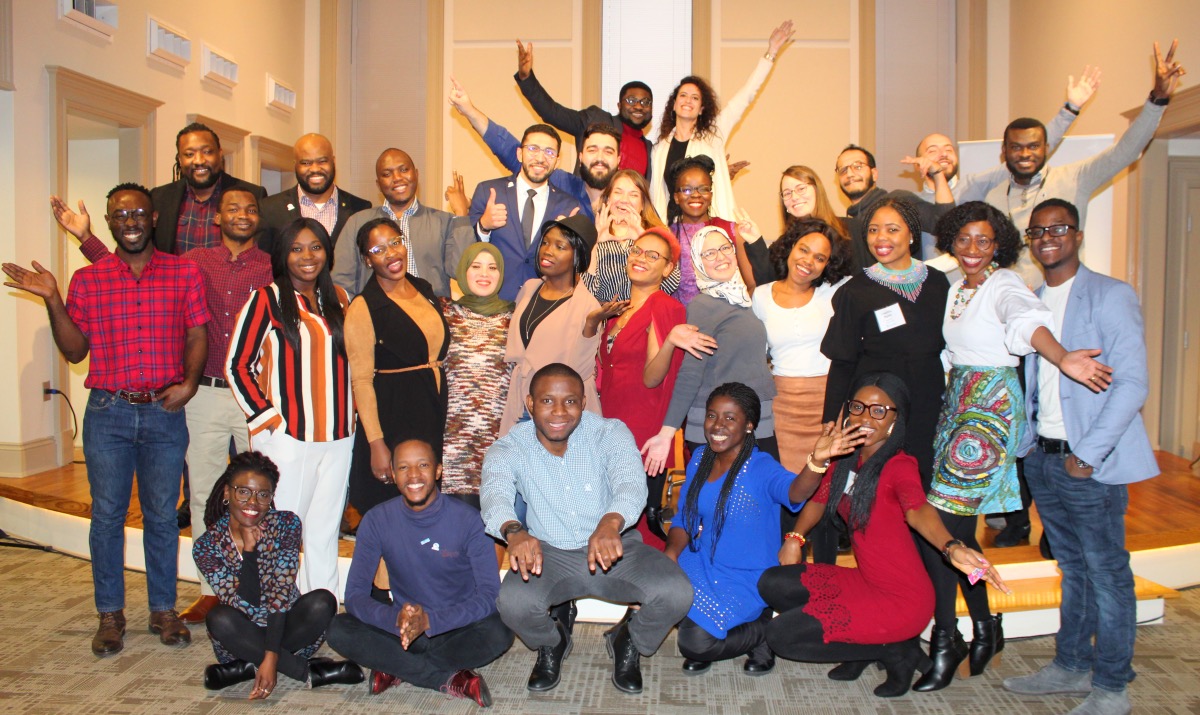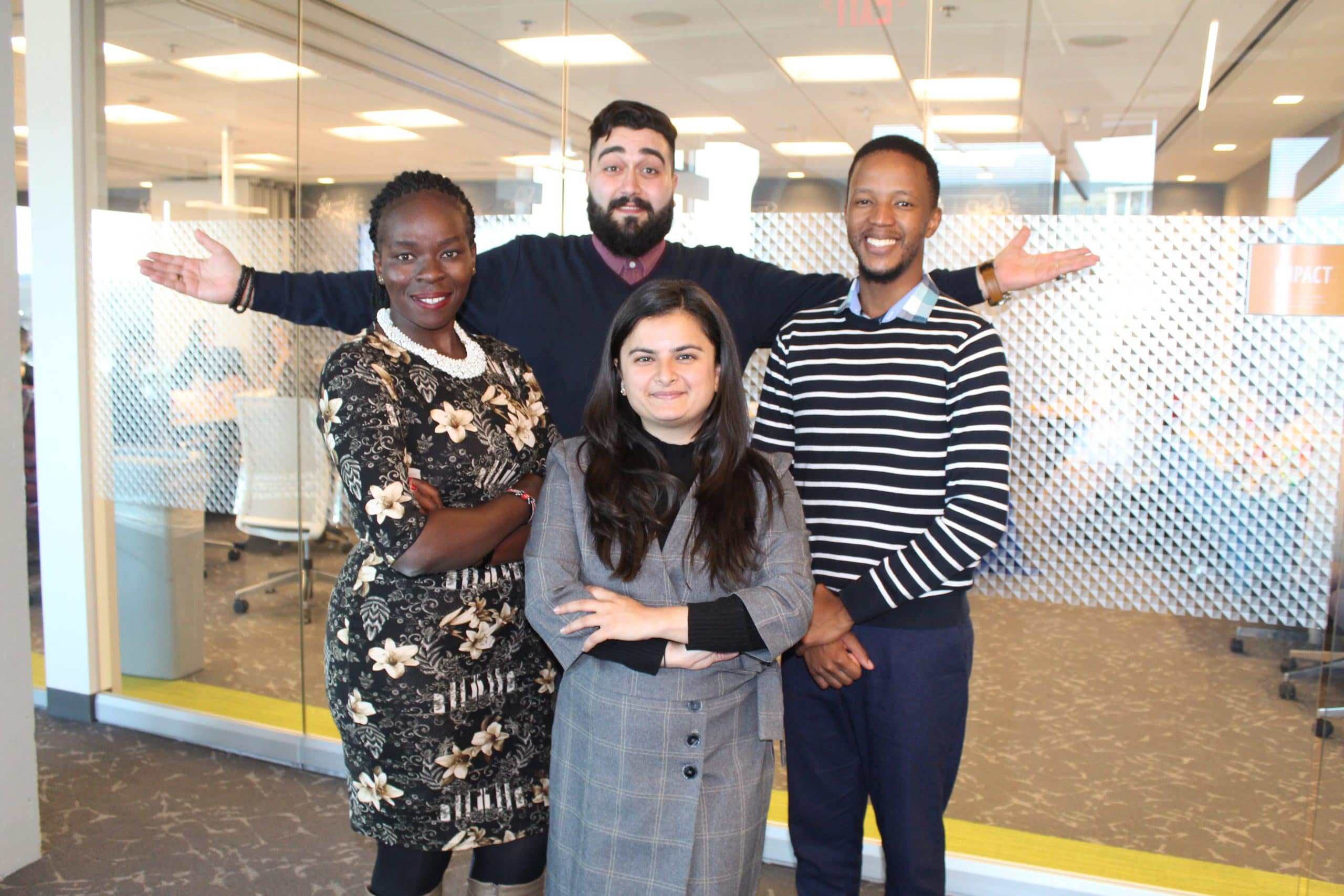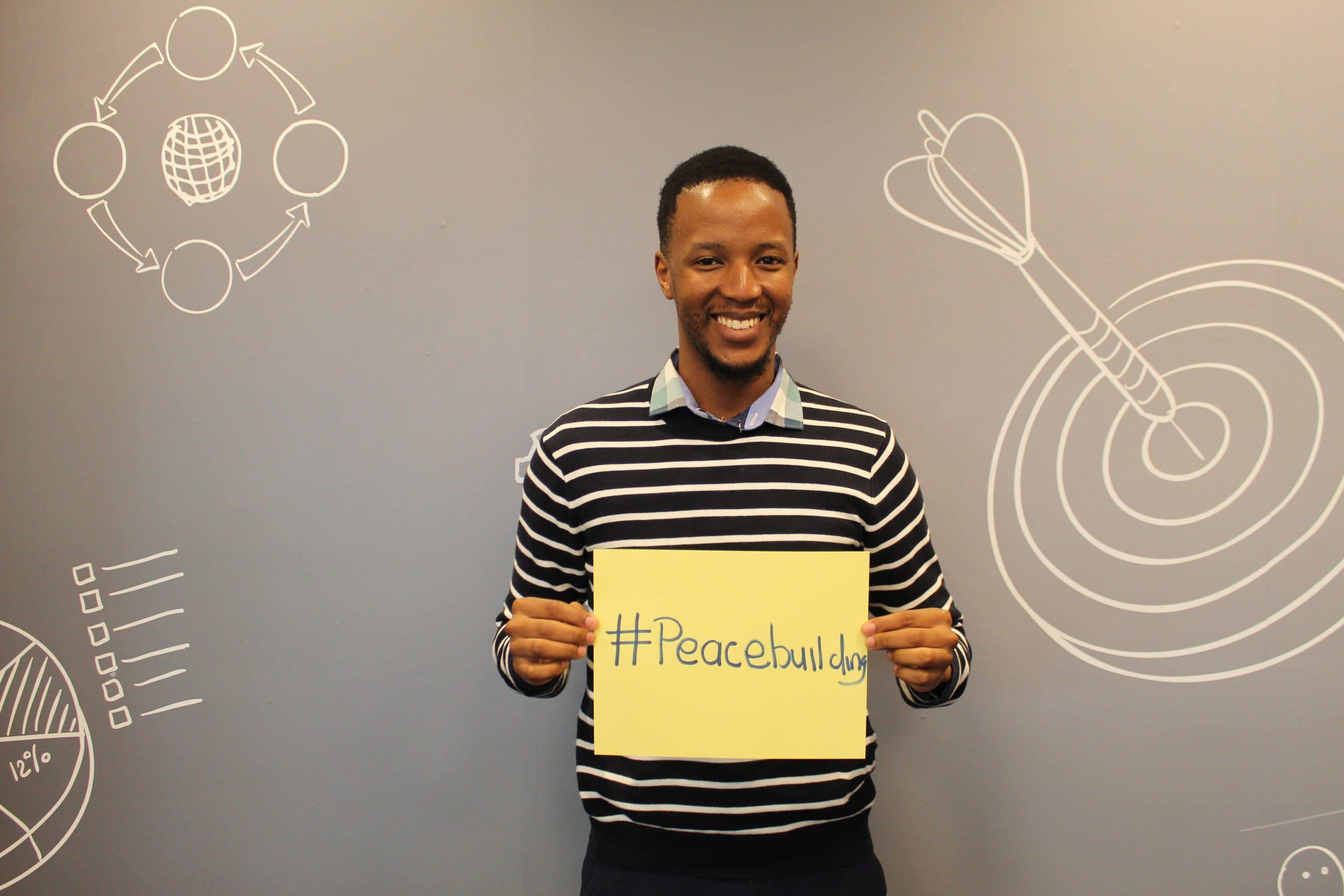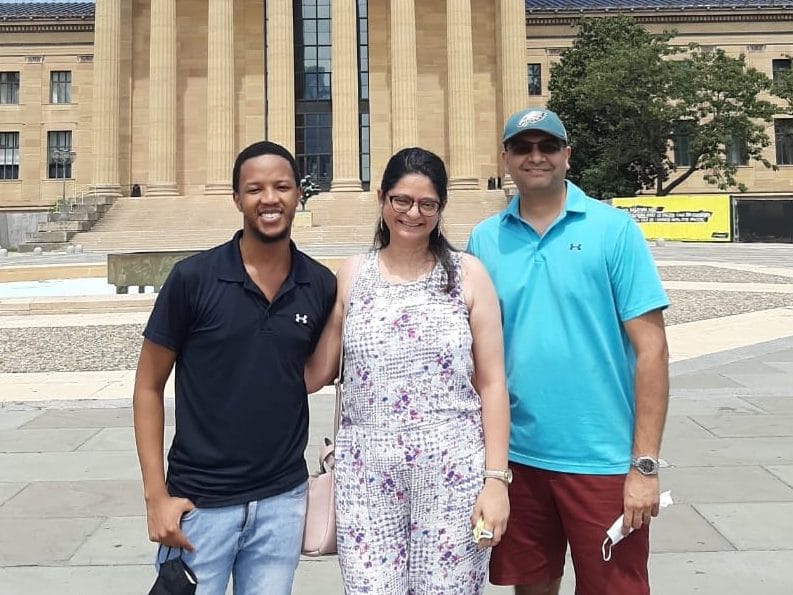
The Atlas Corps Fellowship was established in 2006 to help find solutions to social problems all over the world. The mission of the fellowship is to strengthen nonprofit organizations globally by investing in the leadership development of skilled social sector professionals aged 22 to 35. During the 12- to 18-month program, social leaders come to the United States to serve full-time at host organizations, including nonprofits, private sector, and government agencies. They also learn best practices through the Atlas Corps Global Leadership Lab professional development series. After the program, fellows return to their home countries/regions to continue serving their communities for at least one year.
We spoke with current Atlas Corps Fellow Busang Davies Maruping, who is from Botswana and serving at SAP SE, a software company located in Philadelphia, PA, Newtown Square. He shared with us his experience as a Fellow and gave us some great application tips!
1. What inspired you to apply for the Atlas Corps Fellowship?
When I was doing my third year in University, I started thinking about where I wanted to be in the next five years. At that time, I was just a university student with big dreams. I envisioned myself working for the United Nations doing humanitarian work and playing my role in influencing change to help serve the most vulnerable communities in Africa.
Since I knew where I wanted to be, it was easy to identify the next possible steps to help me get there. I enrolled in different leadership programs, familiarised myself with the state of affairs, and did much research on human-centered policies and even sought mentorship from the experts. To me, this was a breakthrough as it unleashed the leader within me and gave me the confidence to start building community-based projects that I have always wanted to implement with a better approach. I started applying for different international summits and training as a representative from Botswana/Africa to share my ideas and thoughts with other young leaders like me across the world and expand my network.
I found out about the Atlas Corps fellowship in 2017 when I was coming from the United Nations Youth Peace and Security Consultation summit in South Africa. I read about the program online, got excited, and said this is what I need. Was I prepared? Did I know what it takes to be a fellow? The answer to these questions is NO. All that was going through my mind was excitement. I applied. Unfortunately, I didn’t make it to the next round.
In 2019, I gave myself another chance to apply for the fellowship. This time I was highly motivated by my peers from one of the high-level summits that I attended in Germany called Global Solutions. I did a lot of background research on what they were looking for at that particular time and how I could best package my application. This time I knew what I wanted. I knew why I was applying and how the program would enhance my leadership skills but, most importantly, I knew how it would pave a way for me to achieve my biggest dream of serving in an International Organisation like the United Nations and advancing my career goals in Communications for Development. I began my application, a process that took me two weeks to work on, and had someone review my essays. After three months, I was invited to my first interview, and that’s when I knew “a journey of a thousand miles begins with a single step.”

2. What have you enjoyed most about your fellowship so far?
Being a fellow means being part of a big happy family. I have made friends, experienced cultural shock, which was so exciting at the same time, networked and continue to enhance myself with leadership skills.
For the past six months into this fellowship, I have been part of an intense program called the Global Leadership Lab, which brings all fellows into one space where we share speeches, attend skills training, and get a chance to network with other fellows and learn more about the work they do in their respective communities and how best we can support them. Global Leadership Lab gives all fellows a chance to share their projects they are engaged in back home and also have thought leadership conversations. I have had a chance to share my own presentation on Peace Dividends and Development in Africa and the role of young people in promoting peace. Some of the topics of discussion include, but are not limited to, Climate action, Gender Issues, Community Development, Innovation, and Conflict Resolution. You would be surprised at how much someone sitting next to you can help solve your challenges within a snap of a finger.
When I did my introduction, I mentioned that I serve at SAP SE. However, before I got a placement with SAP, I was invited for an interview by a different host organization, from whom I got a regret email later on. Even though this was bad news at that time, I must say it was somehow good riddance. Why? Because I have never been as happy as I am with my current host organization. I work with leaders. Their level of support in helping me grow is amazing. The very first time I interviewed with them I was like, this is where I want to be. I have had the opportunity to work from home (even before the pandemic), take a break from work whenever I feel overwhelmed, attend personal development training within the organization, do regular check-in meetings with my supervisor, and receive career guidance. We all know this pandemic has affected a lot of us, especially mentally. My supervisors are always ready to send some goodies to my door whenever I feel down.
On a professional level, American culture has taught me discipline. I work with a global team from East and Middle Asia, Africa, Europe, and America, so every single day is a working day. I have learned the importance of constructive feedback and how it helps you grow professionally, developing Emotional Intelligence in the workplace, building trust, and time management.

3. What tips would you give others applying to the Atlas Corps Fellowship?
The Atlas Corps application process is a very competitive one. Just to share with you the process, after being invited to submit a long-form, I was invited for an interview with the Atlas Corps team just to talk about my skills and how the program will be of great benefit to me. After that, my application was then considered for the semi-final stage, which means host organizations can start reviewing my profile. I immediately got an interview with a host organization doing diplomacy work, which did not go well, as I got a rejection a day after. After four weeks, when I was just about to give up, I received another interview with SAP SE. They were looking for a Corporate Social Responsibility (CSR) Global Communications and Marketing fellow who would spearhead and support the team with communication strategy and content management. For this role, I was competing with seven other applicants from across the world with more than five years of experience in the communications and marketing industry. That’s when I knew I had to prepare. After passing the first interview they asked me to submit my portfolio for further review and final decision, and I got an offer two weeks after. It’s important to know what you want and how this program will enhance your career goals.
Out of all the programs I have attended, this is so far the best. If you also feel strongly dedicated to applying for Atlas Corps, then give it all the time it deserves. Preparing an application is a job and requires all the time you have. Have someone review your essays, correct your grammar, and, most importantly, make sure your answers are consistent and resonate with your career aspirations. The Atlas Corps application process is a very tedious one and requires patience.
When invited to an interview, don’t rush. Make sure you are well prepared. I still remember how I recorded myself and played the recordings repeatedly while at the same time drafting short notes. You may think that you got this, but once you get into the interview room, it is easy to experience anxiety and start fumbling. The most important thing about an interview is an introduction. Make sure you introduce yourself with a smile and confidence. Americans value confidence. Even if you don’t know the answer to the question but show confidence and honesty in what you say, you are most likely to make it. I must say my first interview failed not because I did not meet the requirements, but because I experienced a bit of anxiety, and my introduction did not go as planned. Also, I appeared to be more modest, which did not impress the interviewer. I had to go back and work on these weaknesses. You are your only salesperson. Whatever comes out of your mouth can either break or make you.

Busang Maruping has 4 years of experience in the integration of strategic communication and development projects. His interest lies in communication for development. Previously he served as a full-time senior Communications Specialist for the World Economic Forum Global Shapers and the UN Volunteers program. As a communication expert, he provides support and expertise towards facilitating shifts in power relations and contributing to positive social transformation led by those most affected by development policies. Busang has extensive knowledge in communication strategy design and planning. He has used this wide-ranging knowledge as an International Youth Consultant for CIVICUS, a global alliance of civil society organizations and activists dedicated to strengthening citizen action and civil society throughout the world. In this role, he has joined the CIVICUS team in designing a prototype that will better resource young activists from the Global South.
As a social leader, he has launched social cohesion projects in Botswana such as the Albinism Awareness Campaign, a project that was recognized by the World Bank Group. As an Atlas Corps fellow at SAP in Philadelphia, PA, he serves as a Global Corporate Social Responsibility (CSR) Communications and Marketing Fellow leading marketing and communication efforts for strategic partnerships and the three strategic CSR pillars (building digital skills, accelerating best-run nonprofits and social enterprises, and connecting employees with purpose). He has a BA in International Business from Limkokwing University of Creative Technology.
Interested in applying? Bookmark the Atlas Corps Fellowship to your ProFellow account.
© Victoria Johnson 2020, all rights reserved.